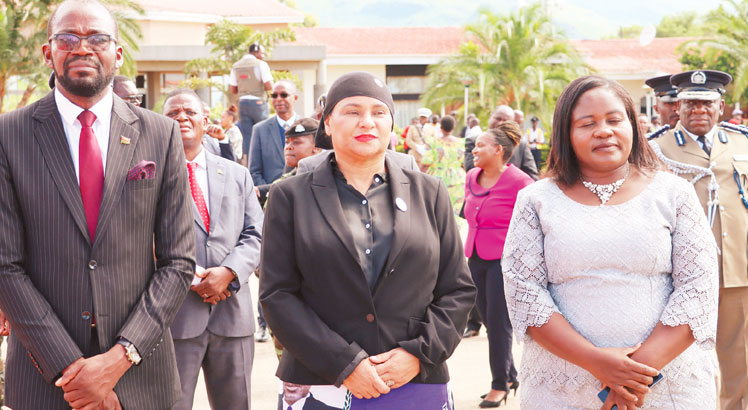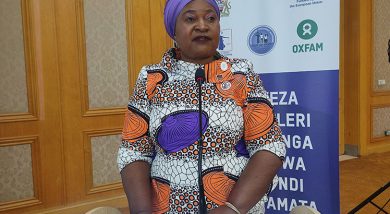Cabinet houses on the cards
Malawi Government has moved to build 30 houses in Lilongwe for Cabinet ministers and save about K360 million annually spent on either housing allowance or rentals.
The 2024 Public Sector Investment Programme (PSIP) also shows that five houses for senior government officials are planned for construction.
The PSIP, which outlines projects and programmes for approval by Parliament, states on the project: “The project involves construction of houses for ministers and senior government officials. The target is to construct 30 houses for ministers and five houses for senior government officials in the city of Lilongwe.”
The ministerial houses project of Ministry of Lands is expected to run from April 2024 to March 2027 and is projected to cost K5 billion, according to the PSIP.

and Digitisation Moses Kunkuyu, Water and Sanitation Abida Mia
and Deputy Minister of Education Nancy Mdooko
However, the document does not provide information on the source of funding.
Currently, President Lazarus Chakwera’s Cabinet has 21 ministers and four deputies. Apart from basic salary, the ministers also receive K1.2 million each in house allowances.
The PSIP says there are 13 houses for ministers available now, as such, the construction of new houses would ensure that the number of houses available matches with that of ministers while also reducing expenditure pressure on the national budget.
Reads part of the PSIP: “[The objective is] to provide decent
housing for Ministers and senior government officials. The project is at preparatory stages.”
Minister of Lands Deus Gumba referred The Nation to the Principal
Secretary Davie Chilonga who, however, had not responded by press time.
Budget and Finance Committee of Parliament chairperson Gladys Ganda in an interview this week noted that the government has been paying rentals for houses occupied by some ministers and sometimes the government has been struggling to meet the rental payments obligations.
She said where resources are available, construction of houses will be a way of lessening the burden on the long-term fiscal pressures that the government faces.
Said Ganda: “However, in view of the fact that resources are limited now, it is prudent to finish chiefs and security projects before embarking on ministers’ houses.
“Besides, the government needs to also do a proper cost/ benefit analysis because in the short-term, it may not have resources to embark on such a project, yet permitting the project will be a way of lessening some burden on the long-term fiscus pressures.”
The PSIP contains initiatives from various government ministries, department, and agencies (MDAs), and serves as a crucial mechanism for implementing the country’s medium and long-term development strategies.
Other projects outlined in the 2024 PSIP include continuation of construction of 10 000 houses for officers working in security institutions as well as houses for chiefs and teachers.
According to the PSIP, the construction of houses for security institutions has been hit by lengthy procurement processes, funding delays as well as high cost of materials such as steel and cement which have pushed up project costs.
On chiefs’ houses, the PSIP says works are being carried out at 70 sites across the country where houses are at different levels but adds that the K15 billion project has been affected by funding challenges as well as inflation and other economic challenges.
In a PSIP document released in 2022 , government also announced plans to construct houses for 193 members of Parliament at a cost of K60 billion.
However, the project, which was met by opposition from various social commentators, has not appeared in the 2024 PSIP.






s1vrvt